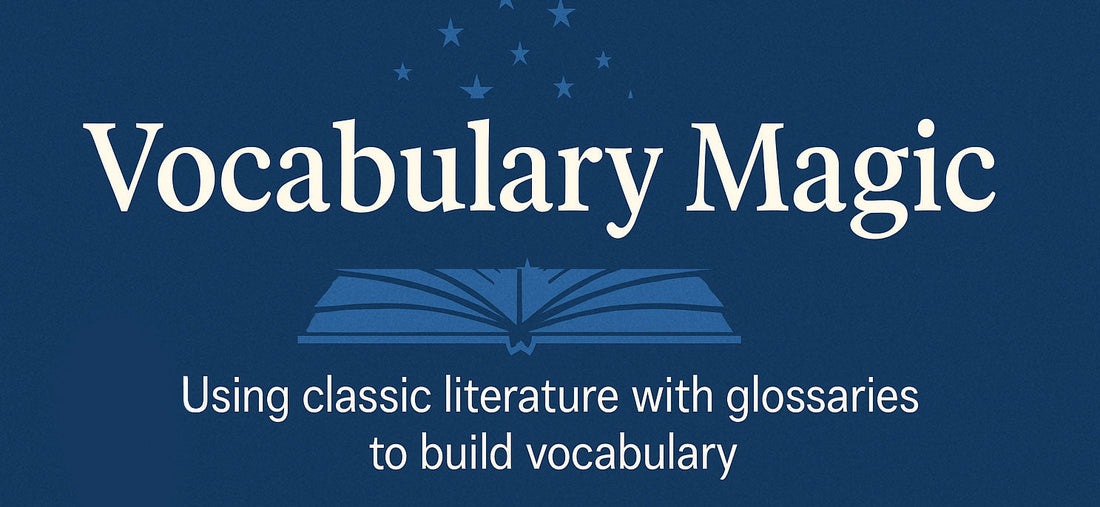Vocabulary Magic

Share
When it comes to expanding vocabulary, students are often handed the age-old advice to "just read more." While reading is undoubtedly a powerful tool for building linguistic skills, the approach needs to be adjusted for it to be effective. Especially in English classes, where classic literature is a staple of the curriculum, students can feel overwhelmed by the dense language and archaic expressions of authors like London, Dickens, or Fitzgerald. But what if the secret to unlocking a world of vocabulary magic lies in the simplest of tools: a well-crafted glossary?
Books like those offered by Classics Made Easy are game changers for young readers. By providing comprehensive glossaries alongside classic texts, these editions turn confusion into clarity. When a student encounters a word they don’t know, the definition is right there, ready to be understood and incorporated into their own vocabulary. Instead of stumbling over unfamiliar words or skipping them entirely, readers can enjoy a seamless and enriching experience.
The importance of having clear definitions at hand cannot be overstated. Expecting students to absorb vocabulary through osmosis — the idea that mere exposure will magically result in understanding — is a flawed approach. Even if they encounter a word repeatedly, without a clear definition, they might never grasp its true meaning. Worse still, they may form incorrect assumptions based on context clues alone.
Think about it: if a student is reading The Call of the Wild and encounters a word like "paroxysm," they might have no idea what it means if they’ve never come across it before. Without clarification, they will either breeze past the term or guess at its meaning based on vague context, missing out on a richer understanding of the scene. With a glossary, however, they quickly learn that "paroxysm" refers to a sudden, violent outburst of emotion or activity. Suddenly, Buck’s fury or excitement is clearer and more vivid, enhancing the reader’s grasp of the narrative.
Moreover, building vocabulary in this way offers more than just academic benefits. A rich vocabulary can enhance creativity, bolster confidence in communication, and foster a lifelong love of reading. Words are tools for thinking, expressing, and understanding the world. By empowering students to grasp their meaning, we give them the tools to think more deeply and articulate their thoughts more precisely.
Classics Made Easy recognizes that reading challenging literature shouldn’t feel like a punishment. Instead, it should be an adventure. With the right resources, students can transform their reading experiences from chores to opportunities for growth. And as they expand their vocabularies, they are better prepared not only for academic success but also for effective communication throughout their lives.
In short, vocabulary magic isn’t about guessing or passively hoping the right words will stick. It’s about taking charge of learning, armed with accessible tools like glossaries to unlock the mysteries of language. Classic literature offers a treasure trove of words waiting to be discovered — and with the right help, students can claim that treasure as their own.
